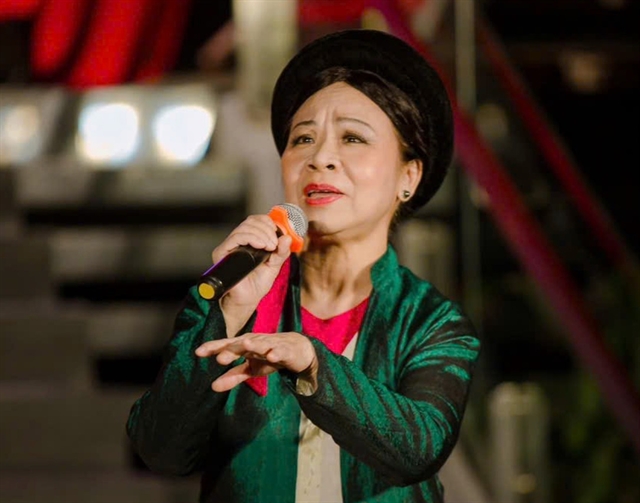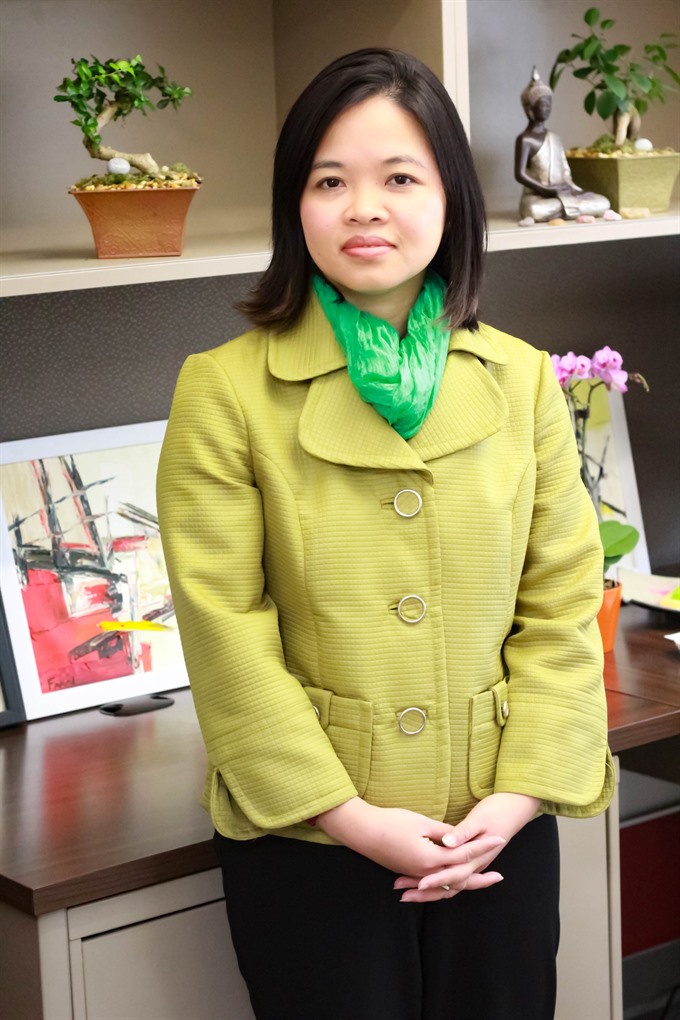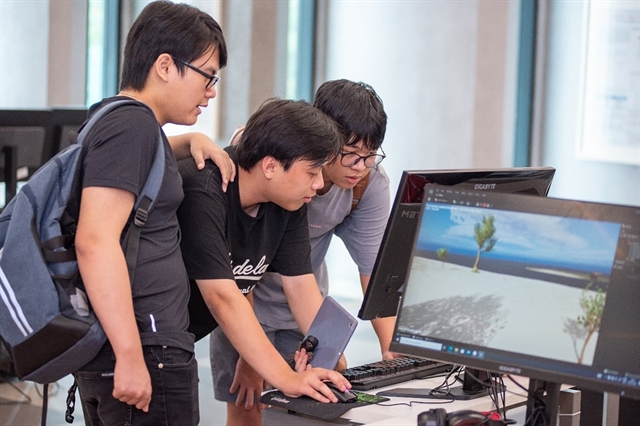 Inner Sanctum
Inner Sanctum

Bestselling author Phan Việt has released the third volume of her non-fiction series called Bất Hạnh Là Một Tài Sản (Unhappiness Is an Asset). Việt talks to Lương Thu Hương about her new book and her writing.
 |
| Author Phan Việt. |
Bestselling author Phan Việt has released the third volume of her non-fiction series called Bất Hạnh Là Một Tài Sản (Unhappiness Is an Asset). Following on the success of the previous two volumes - Một Mình Ở Châu Âu (Alone in Europe, 2013) and Xuyên Mỹ (Journey Through America, 2014), the third, Về Nhà (Coming Home), continues to lead readers into the writer’s inner world as she continues her journey of rediscovering herself. Việt talks to Lương Thu Hương about her new book and her writing.
Inner Sanctum: Về Nhà (Coming Home) is your latest book release, and also the final volume in your Bất Hạnh Là Một Tài Sản (Unhappiness is a Fortune) series. For those who don’t know, can you tell us a little more about it?
An easy way to describe this series is that it’s a three-part journey through the divorce of a Vietnamese woman living in America.
The first book, Alone in Europe, is about the time she travelled alone through Europe, struggling with the decision to get divorced. Note that, this is in the context that she is a Vietnamese woman with all the traditional gender beliefs about marriage and the taboo against divorce in Việt Nam.
The second book, Across America, is about the psychological turmoil of actually going through the divorce while also finishing her PhD in Chicago, and then moving to California to start a new job.
The last book, Coming Home, is about her healing when she returned to Việt Nam and stayed in Buddhist temples, researching mental health. But the healing process only comes after she also encounters a ghost in the night and experiences many other unfortunate events. Basically, this is the story of a woman who faces many challenges and unhappy events to find truth and peace within herself and with the world.
Inner Sanctum: You are an Assistant Professor of Social Work at the University of South Carolina (US). What inspired you to write?
I started writing long before I thought I would become a professor. I think I was in my second year in college when I published my first short story. Writing came to me rather naturally. I think part of it was because I read a lot growing up and was always observing and contemplating as a youth, but I didn’t speak much and was not very sociable, so I found that I could express myself more freely through writing. Writing also helped me to really know what I was thinking. Over time, it became an identity and it made me happy. I used to think I would be a literary author. Now I don’t think so any more. Writing now is just a means to do good things; it’s not an artistic journey any more.
Inner Sanctum: Can you explain the title of the series Unhappiness is an Asset?
I think you never know who you really are, what your limits are, what your fears and strengths are until something very difficult happens to you, breaks you down, and tears you apart. Unhappy things in life are hard to bear and we don’t like them, but they are also the things that make us grow and transform the most.
Inner Sanctum: In Coming Home, you write mainly about your predestined affinity to Buddhism. How has Buddhism helped you find the answers you were seeking in life?
This series started with one question: Why can’t I control my thoughts and feelings, before and through the divorce, although they are mine? And that question turned into other more complicated questions: What is the mind? What is “me”? How is “me” and “mind” related? The questions were personal, but they also triggered the researcher in me. I wanted to find out. And this search led me to Buddhist temples in Việt Nam, America, Japan, India and Thailand, because Buddhism is all about the truth about mind and the self.
Inner Sanctum: Each book in your series leads readers into your world of inner feelings, and the first two volumes are set in travels through Europe and America. So where do you feel you really belong? Paris, America or Viet Nam?
Home is not a geographic location any more, even though once in a while I do think “Oh, I want to go live in Kyoto for a few years.” Home is more within me. I am content with me, with this existence, and I can take this body anywhere to use it toward benefits.
Inner Sanctum: Which part of the series was most difficult to finish?
Emotionally, Across America was the hardest one to write. That book is heavy. It was like doing a surgery, it was necessary but painful. Coming Home was also difficult but in a different way. I had too much material and I didn’t know how to present all of it, especially since a lot of the original material was about ghosts and beings in other worlds, about life after death, and other spiritual things. I had to cut down a lot from the original manuscripts and I decided to describe only the first summer that I stayed full-time in a Buddhist temple in Hà Nội. I collected data for the book for six years but I only used materials from 3 years.
Inner Sanctum: What was one of the most surprising things you learned in writing your books?
Writing a book, especially non-fiction, forces you to really know what you’re writing about. If you don’t know, you can go on and on and on and can’t end it because you don’t see the point yet. In that sense, writing these books has taught me a lot, and also healed me. It was a therapeutic process. Once I am done with a book, it’s like I can have closure to that part of my life and can move on. I find it hard to read my books again. Once I am done writing, there’s really nothing else to do with the book. I have a brief moment enjoying the release of the book; but then I will say, “Good luck! Go to your readers now!” and I move on to the next book.
Inner Sanctum: Apart from being published, what was the most rewarding part of your journey with Unhappiness is an Asset?
Knowing that the books and my story helped people. I still get emails from people telling me how the books helped them through difficult times. Some said the books helped them to understand what they went through and thus they could finally make peace with their decision. It’s rewarding for me to know that my books do not just give people a few hours of entertainment, but can actually help them in certain ways.
Inner Sanctum: You are planning to publish a book in English. Can you tell us more about it, as well as your future writing plans?
Yes, I am working on an English book now and I have the first draft already, but I am not ready to talk about it yet. I am also writing another book about American education. There is also another book, which comes from the material I couldn’t squeeze into Coming Home. VNS




